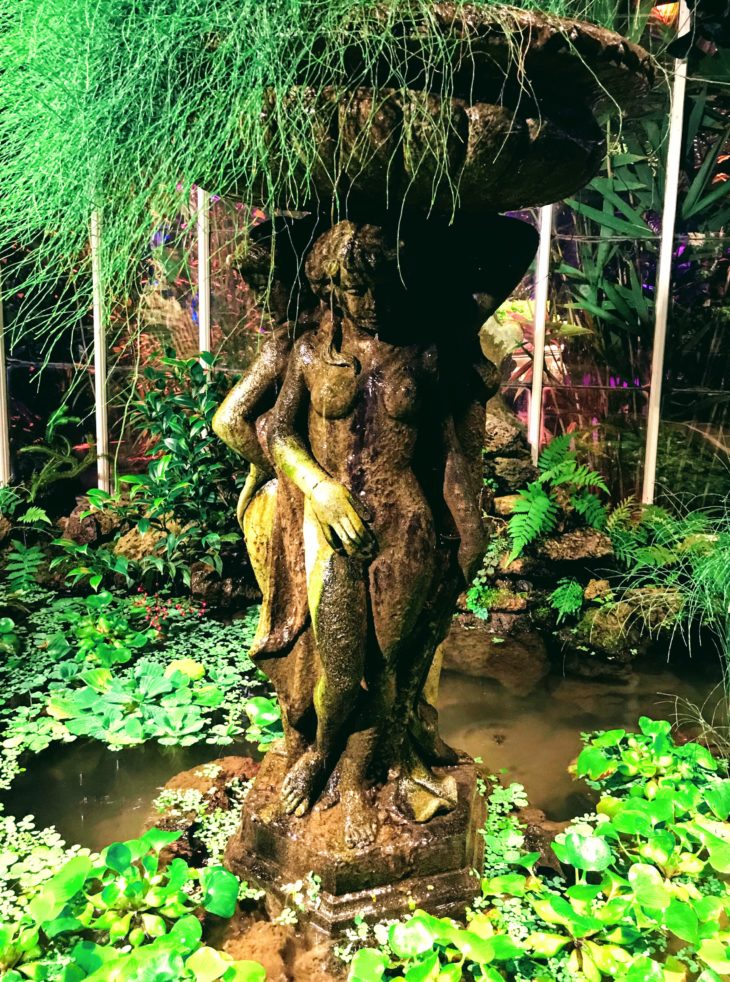“Did you just look at me? Look at me. — How dare you! Close your eyes.”
Before the dubious and un-meaningful Oscars are distributed to the highest bidders, a few thoughts about The Favourite:
I wasn’t up for yet another round with British ruling class. I’ve recently had my fix of plucky servants conjuring feasts for testy-yet-adorable royals with problems we’d love to have. Then I saw the trailer.
The Favourite Official Trailer — I had to see it immediately.
“I ate a chip before the first scene,” said a friend, describing her first look at Sons of Anarchy, “I never set down the bowl until the credits.”
I had a similar reaction to The Favourite. Although there were no chips, I was too riveted to find a blanket or rearrange my limbs. By the end I was cramped and shivering, and stupefied at the spectacle I had witnessed.
Among the many hi-lights:
— As Queen Anne, Olivia Coleman was riveting. In one scene, she is pushed in her wheelchair for an audience with her cabinet, where the bloviating continues while she sits there. Her face, as the camera lingers on it, escorts us to the depths of a clever, passionate, suffering, fascinating personality. Coleman is always a force to be reckoned with, but this role gives her talent free reign to show us her formidable range, at long last.
— Three awesome roles for women who are over sixteen!
— Women having interesting lives that don’t center on a romance with a man.
— A woman’s grief about her lost children rendered in its perpetual rawness.
Not since the series, Orphan Black have we enjoyed such bounty.
— The way Emma Stone’s Abigail, shaped by her experience of having been sold by her father to a creepy old man, works her ass off to get out of servitude, while using her body as a commodity — her casual, pathos free haggling over the terms. A believable, riveting performance.
— Rachel Weisz’s Lady Sarah, her mechanical, exhausted gait as she manages the insanity that keeps boiling up in the queen. Weisz continues to amaze as her career unfolds. I still remember the first time she stormed onto the screen in The Mummy. Later she broke my heart with the unforgettable, The Whistleblower, from which I will never recover.
— Coleman’s Queen Anne — bereft, damaged by disease and loss, and power without constraint — her many startling antics — playful, charming, and dreadful by turns.
These are glimpses into the inner sanctum, where these women are stunningly, bracingly, awesomely, shockingly, themselves — unfiltered by the ubiquitous influence of the male gaze. This is what kept me spellbound. With few exceptions, (Grey Gardens and What Ever Happened to Baby Jane come to mind) I have never seen this in a film before.
I don’t know how anyone could miss the awesomeness, except that we are conditioned to expect something prettier from female characters — also artificial, and banal — as though, when women are of view, we sit nicely, with backs straight, and hands neatly folded. The Favourite pulls back the curtain, revealing a sorcerous world where anything may happen.
My only problem with the ending, which I found painfully exquisite in its restraint, is that I wanted more. Those characters could have gone on like that and I would still be watching.
— Jean Znidarsic, Tarweed

